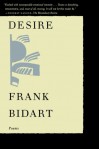1
Followers
29
Following
Seanachie: A Boston Irish Storyteller and Part-Time Shaman
Books about place, magic, Faeries, Ireland, sex, God, and love
Currently reading
New Orleans as It Was
New Orleans after the Civil War
Visions and Beliefs in the West of Ireland (complete: First & Second Series)
Bright Dead Things: Poems
The Subtle Art of Not Giving a F*ck: A Counterintuitive Approach to Living a Good Life
Desire: Poems
Selected Poems 1976-2012
An Anthology of Modern Irish Poetry
I Am An Executioner: Love Stories
An Artist of the Floating World
The Wonder
 This new novel by the author of “Room” is an entirely different take on what it means to be trapped and to be rescued. It is set in rural post-famine Ireland in the late 1850s. An English nurse trained under Florence Nightingale during the Crimean War is dispatched to a small town, where an eleven-year-old girl is said to be experiencing a miracle: she has not eaten a morsel of food since in the four months since her eleventh birthday and is subsiding on manna from Heaven alone. By order of a local commission of officials, including the local priest, the nurse and a middle-aged Sister of Mercy take on the task of keeping 24-hour watch over the girl to prove that the girl is truly a miracle ... or that she is a fraud.
This new novel by the author of “Room” is an entirely different take on what it means to be trapped and to be rescued. It is set in rural post-famine Ireland in the late 1850s. An English nurse trained under Florence Nightingale during the Crimean War is dispatched to a small town, where an eleven-year-old girl is said to be experiencing a miracle: she has not eaten a morsel of food since in the four months since her eleventh birthday and is subsiding on manna from Heaven alone. By order of a local commission of officials, including the local priest, the nurse and a middle-aged Sister of Mercy take on the task of keeping 24-hour watch over the girl to prove that the girl is truly a miracle ... or that she is a fraud.“The Wonder” is an intimate book, focusing on the experience of Lib, the Nightengale nurse, a born skeptic and adherent of science. Her skepticism is caustic and derisive. She imagines that she will uncover the fraud in her first shift. In fact, a week passes without any sign of fraud -- but a clear deterioration in the girl’s health. Ultimately, Lib sees the watch itself as a peril to the girl’s survival.
The girl at the heart of this book is a lovely, pious, and intelligent character, albeit guilt-ridden and stubborn in the extreme. The villagers that surround her are fervently Catholic and allow their thirst for a miracle to overwhelm their love for the girl.
Lib, on the other hand, is not particularly likeable, and that is the particular flaw of the novel. She is unsympathetic, brusque, argumentative, superior, dismissive, anti-Irish and -Catholic, and bumbling -- if very, very smart and very very lonely. When she ultimately attempts her escape from her predicament, the reader is not actually rooting for her success, but rather hopes she ends up in jail. This does not appear to be what Donoghue intended.











